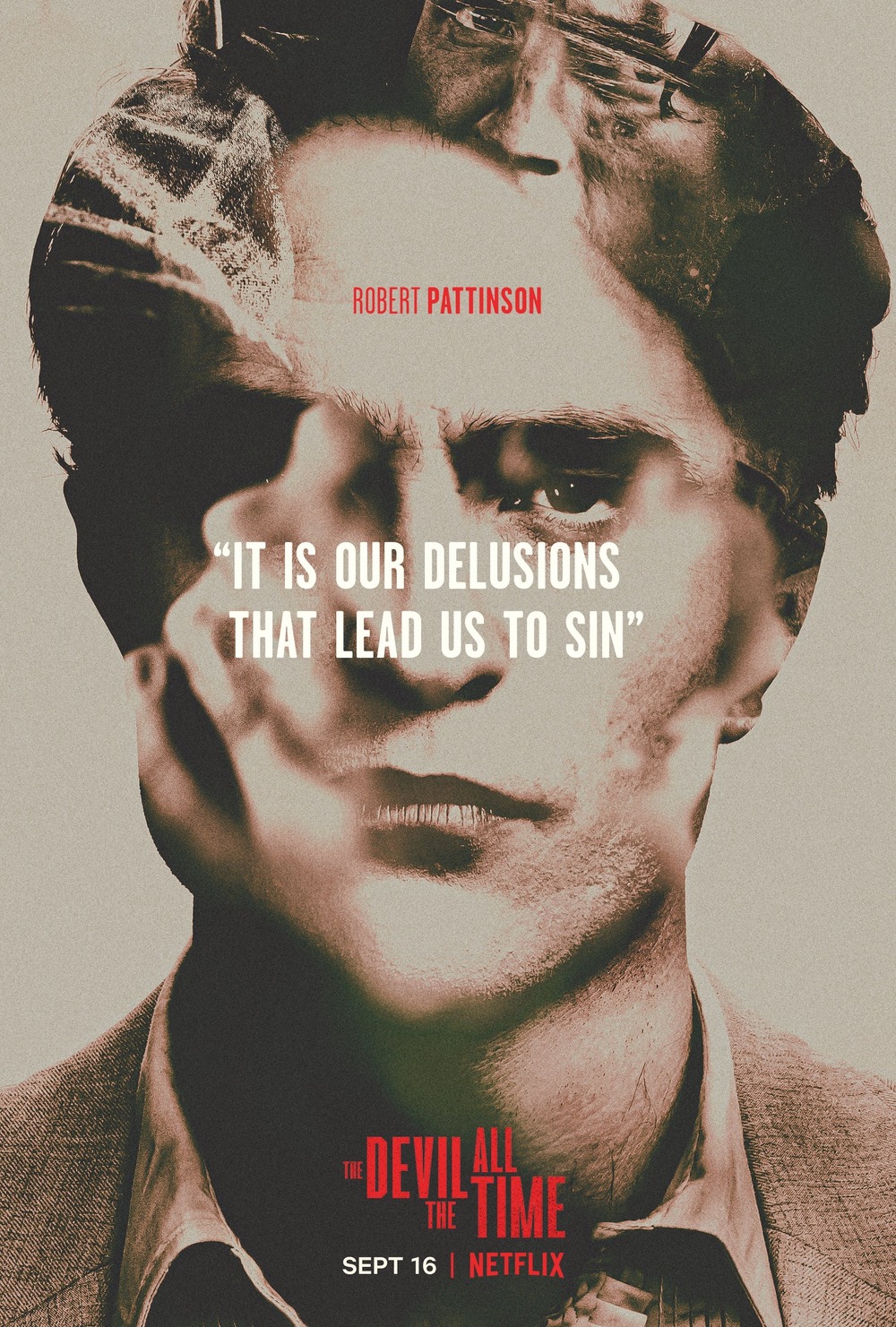
The good news is that the film isn't nearly as violent at the novel, but that's not saying much. But in the middle of a pandemic, in which thousands of people die every day not because of our capacity for violence but because of our lack of empathy, it just feels depressing. It's a very dark view of the world, and in another version of 2020, in which we were dealing only with the rage and violence engendered by our current president, such a worldview might feel timely. While today we tend to airbrush the 1950s with visions of girls in poodle skirts and boys with guitars discovering rock 'n' roll, Pollock's argument is that the human capacity for violence, without a focus, pummels everything in its path. But among the endless betrayals, the suicides, the executions - not to mention the rape and abuse of women - the story was trying to make a point about this specific period between World War II and Vietnam. The story is a savage one, and the book was known for its blood-soaked scenes.

Brutal, with a large twist of religious hypocrisy crossed with Southern noir, "The Devil All The Time" is an oddly meandering film.


 0 kommentar(er)
0 kommentar(er)
